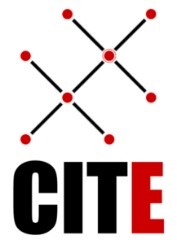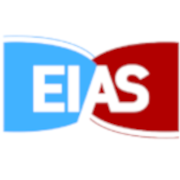RARE project is implemented by a consortium of technical & scientific partners who develop its technological, scientific and business basis.
The Implementation Group

Laboratory of Local and Regional Development (LoReD): The research team of the Department of Economics (University of Piraeus) has the necessary know-how to effectively empower the RARE project by contributing to the following axes:
- Road transport and vehicle insurance market analysis.
- Design and development of end-user incentive schemes.
- Implementation of a pilot operation of the application.
- Study of the economic, social and environmental effects of the research project.
Core team members:
- Markos Tselekounis (Assistant Professor, University of Piraeus): He serves as the Scientific Director of the RARE project and is in charge for the overall scientific supervision of the project activities and the promotion of high quality results.
- Sotiris Karkalakos, (Professor, Department of Economics, University of Piraeus): He is the Director of the Laboratory of Local and Regional Development, thus he has coordinated and participated in several research funding projects. He serves as the Coordinator of the RARE project and is in charge for the overall coordination of the project.
- Sofia Xesfingi (Post-Doc Researcher, Department of Economics, University of Piraeus || Lecturer, Hellenic Open University): Sofia serves as a Research Associate in the RARE project with a particular focus on studying the impact of the safe driving behavior on health care expenses.
- Charalambos (Harris) Agyropoulos (Lecturer, Department of Economics, University of Piraeus || Postgraduate researcher, Department of International and European Studies, University of Piraeus)He serves as a Research Associate in the RARE project. He is responsible for shaping the incentive mechanisms for the use of the total output of the project, as well as for evaluating its environmental effects.

CITE - (Communication & Information Technologies Experts S.A.,): the SME implementing the IT technologies required for the project to deliver its results. CITE develops the technology that handles sensor / data gathering information, handles data coming from aerial externa APIs, executes inference model for road risk calculation and delivers the information to the drivers. CITE also provides the IT infrastructure to test and validate project’s results.
Web: www.cite.gr
Core team members:
- Georgios Kakaletris: A senior solution architect and researcher with experience in 10s of ICT Research and Development Projects, specializing in architecture design for distributed service-oriented systems.
- Papanikos Georgios: A solution architect and researcher laying out solutions for application software in a wide range of business sectors, such as banking, human resource management etc.
- Giannopoulos Stratis A senior software engineer and researcher specializing in cloud applications development, covering the full stack of modern technologies of the field, fluent in several development ecosystems.
- Tziotzios Diamantis: senior software engineer and researcher, covering all spectrum of application implementation, such as mobile applications, web services, web applications etc.
- Tsalamandris Anastasios: A senior consultant and researcher focusing on application testing and data gathering and cleansing.
- Contributors:
- Loxou Nina (administration).
- Sidiropoulou Olga (designer).

EIAS: The Greek Institute for Insurance Education has been founded since 1987 as the official - non profit - educational organisation of insurance market. Its main purpose is to support and enhance the educational planning of insurance companies and intermediaries. The Institute members are almost every Insurance Company operating in Greece, the professional mediation organisations, as well as, a significant number of subscribers, natural and legal persons, part of the insurance market's productive network.
The main objectives of the Institute initiatives are:
- Continuous communication with the insurance and financial sector.
- Effective cooperation with all insurance companies.
- Significant contribution to better use of the first line executives of the market.
- Assistance to Directorate of Human Resources and Directorate of Education regarding their work.
- Launch new activities in order to achieve timely and valid information of the industry on current issues of special and general business interest.
- New educational programs, as well as upgraded annual academic programs offered
- Extended cooperation with significant organisations in a national and European context.
- Contribution to an effective business dialogue always guided by the development of the human capital of the insurance market.
- Support by educating and strengthening the cultures that conform the current requirements and major problems of consumers in the current socio-economic conditions.
- Provide timely and valid information to society on issues related to the development of an insurance culture.
- Support learning procedure with programs wherever and anytime through modern technologies in learning process (e-learning).
- Inform and educate (through physical presence and e-learning programs) professionals and young people who want a career in insurance in all country's regions.

